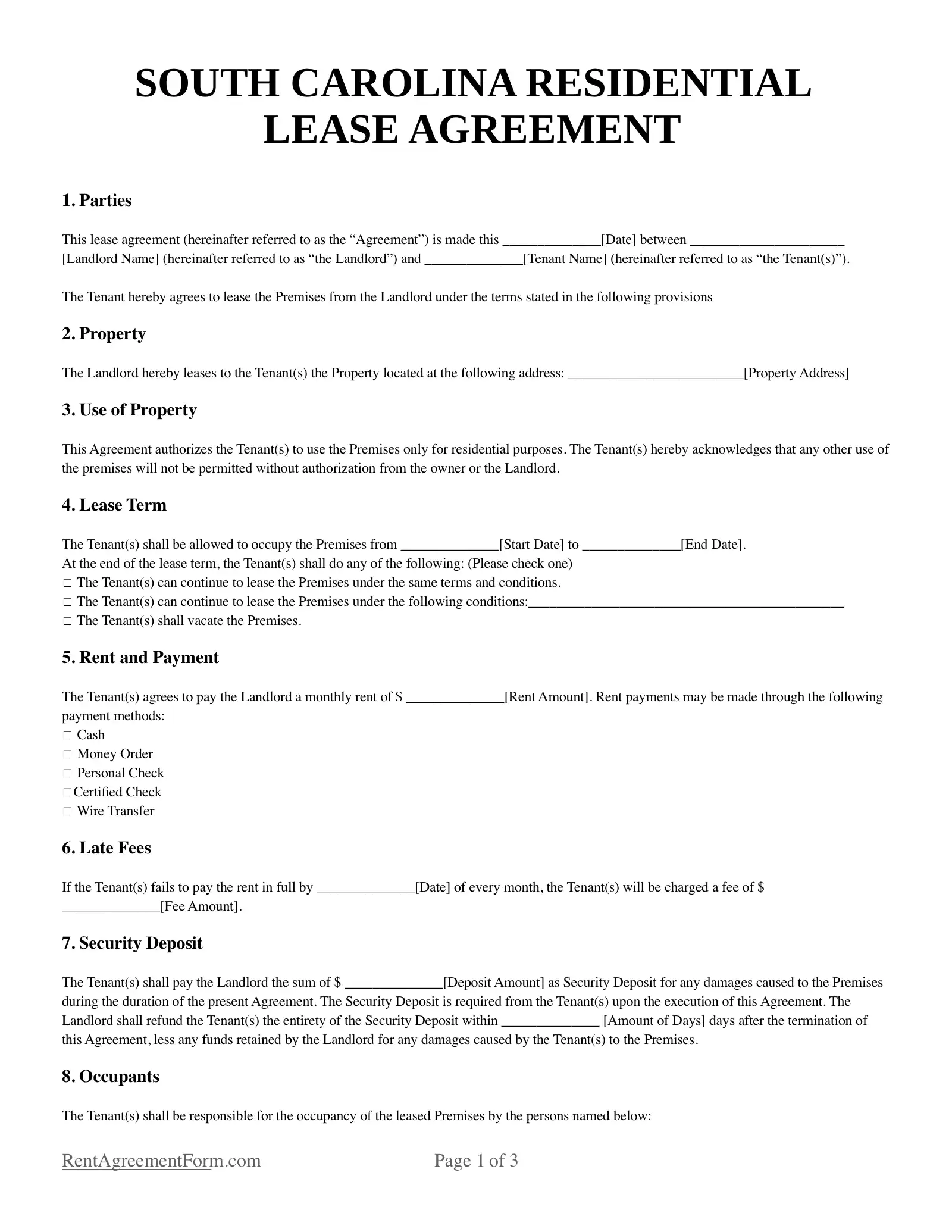South Carolina Residential Lease Agreement Form
South Carolina has beaches and historic districts that make it a popular place to live. People looking for an apartment in the Palmetto State have to sign a South Carolina Residential Lease Agreement Form before moving into any property.
A residential lease agreement is a binding contract between a landlord and tenant regarding the use of a rental property. Before both parties discuss the lease, the tenant needs to have their application approved. If there are other applicants interested in the property, the landlord will have to select the best tenant for the property based on background checks that follow the rental application.
Interested tenants must express their interest and consent to a background check by submitting a South Carolina rental application form and paying the non-refundable fee. If approved, the landlord and tenant can start discussing the lease.
A standard lease will have a brief description of the residential property and the personal information of the landlord and tenant. It will also detail the terms and conditions of tenancy. The landlord will ensure that the property is habitable and free from damage. If there is damage, it is the landlord’s responsibility to have it repaired.
The tenant, on the other hand, must take care of the property and pay rent on time. Rent is usually due on the first of the month unless the lease agreement states otherwise.

Required Disclosures
- Lead-Based Paint Disclosure - The country banned lead-based paint in 1978. However, there are residential properties built before 1978 that still have lead-based paint. If that is the case with the real estate for lease, the landlord must inform the tenant of the dangers of lead-based paint (Lead-Based Paint Disclosure Rule (Section 1018 of Title X)).
- Owner’s Name and Address - For communication purposes, the landlord should provide the tenant with the name and address of the property owner. Personal information is important in legal notices and demands. If the owner lives out of state, the tenant should have the personal information of the owner’s authorized representative.
Rent Grace Period
There is a five-day rent grace period in South Carolina. If the tenant fails to pay rent five days after the rent is due, the landlord has the right to terminate the rental agreement. However, the landlord has to provide the tenant with a written notice first with the terms of eviction clearly stipulated.
The landlord can only start eviction proceedings if the tenant fails to comply with the provisions of the notice.
Security Deposits
There is no limit on security deposits in South Carolina, but most landlords collect them for peace of mind. The security deposit works as a buffer fund in case the tenant fails to pay rent and if there is damage to the property at the end of the tenancy. There is no requirement on where the security deposit should be deposited.
When the tenancy ends or is terminated, the landlord has 30 days to return the security deposit or part of it. The landlord can deduct the cost of repairing property damage from the security deposit. However, they cannot deduct costs due to ordinary wear and tear. The landlord should also provide the tenant with an itemized list of deductions, so the tenant should give their former landlord their forwarding address.
If the landlord has at least four rentals and different costs for each unit, they need to maintain transparency and share with tenants how those costs were derived (SC Code § 27-40-410 (2020)).